8. The American Friend (1977)
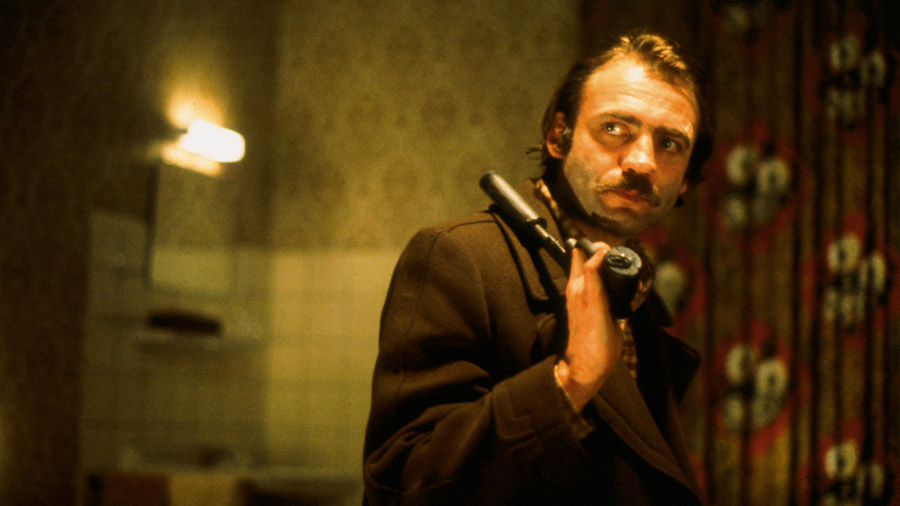
Brilliantly adapted from Patricia Highsmith’s 1974 best-seller “Ripley’s Game”, Wim Wenders’ The American Friend is a luxurious elucidation of existential angst and expression.
Tom Ripley (Dennis Hopper) is a wealthy American ex-pat living it up in Europe who slyly lures Jonathan Zimmerman (Bruno Ganz), an art-loving craftsman––he makes picture frames––into committing a murder for money.
If the double threat of Ganz and Hopper in the lead roles of this film weren’t enticement enough, Wenders also has pivotal roles for iconic American directors Nicholas Ray and Samuel Fuller, there’s also a stunning soundtrack featuring choice cuts from The Kinks, some dazzling camerawork from Robby Müller, and a pulse-pounding subway sequence that will take your breath away. Get acquainted with The American Friend, a stunning Hitchcockian masterpiece you’ll want to introduce to others.
7. Ghost Dog: The Way of the Samurai (1999)
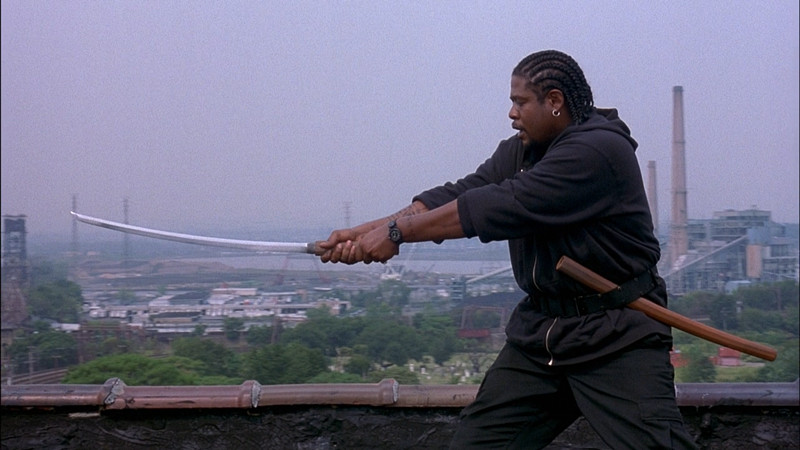
Jim Jarmusch’s Ghost Dog is, simply put, just another one of those hip-hop gangster movies infused with Japanese warrior folklore, filtered through the French existential thrillers of Jean-Pierre Melville, and with a splash of Seijun Suzuki for added sting. Got that?
Forest Whitaker astounds as the eponymous Ghost Dog, a contract killer without peer, also the retainer of a Jersey City-based Mafia don named Louie (John Tormey), who saved his life years ago.
An obvious homage to Jean-Pierre Melville’s Le Samouraï, Ghost Dog is an imaginative, stylish, surreal fever dream of a film with a poignant lead performance from Whitaker, a genius score from RZA (of Wu-Tang Clan), and the familiar flourishes and arthouse embellishments that Jarmusch fans have come to expect.
That said, this is a melancholic, meditative, and anodyne affair, and not your typical action-thriller at all. If you like your films subversive, off-kilter, deliberately paced and unpredictable than you better bay at the heels of Ghost Dog.
6. La Femme Nikita (1990)
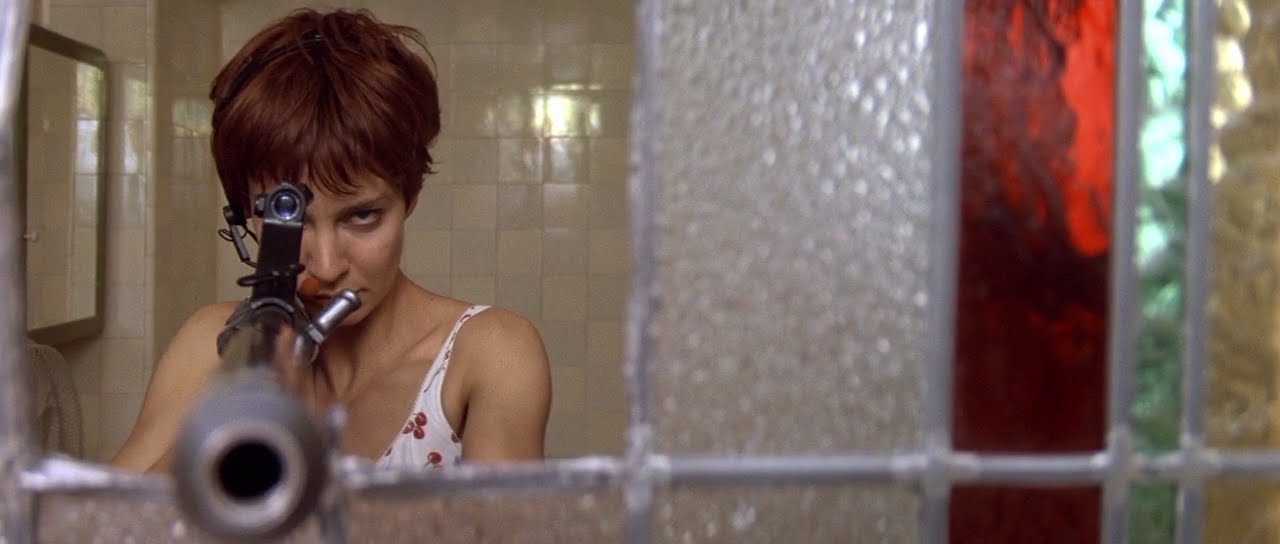
The ambient and atmospheric soundtrack from Eric Serra lingers long in the mind after watching Luc Besson’s stylish, moody, and memorable action thriller that stars Anne Parillaud –– Besson’s wife, btw –– as the eponymous heroine. A drug addict punk, Nikita is saved from death in order to become a government assassin.
A conflicted antihero emerges in Nikita, and a fascinating one. Parillaud is astonishing in this role, a reluctant assassin she soon excels at her new lot and the action-packed pace of the film, combined with Besson’s atypical direction, firing on all cylinders here, and with astonishing results, makes for an urgent, dizzying, blood-soaked delight.
That La Femme Nikita spawned a TV series that lasted five seasons as well as a Hong Kong remake (Black Cat, 1991) and an American remake, too, with Bridget Fonda (Point of No Return, 1993) isn’t so surprising. A stunning work for genre fans, not to be missed.
5. The Killer (1989)
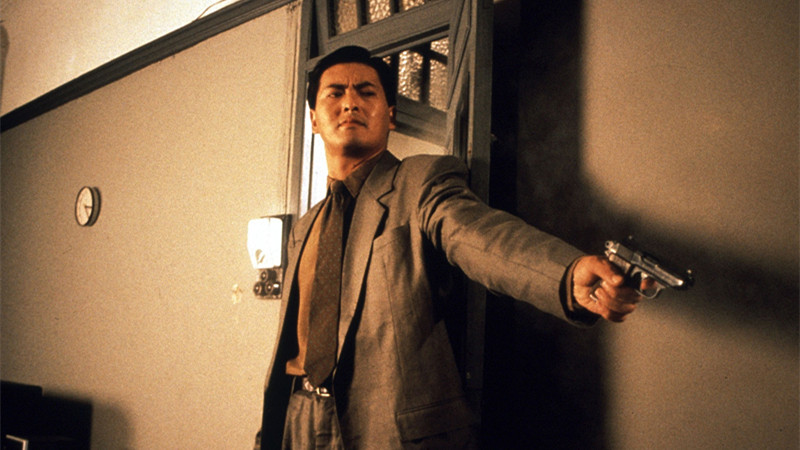
This is the film that single-handedly established Hong Kong action cinema as a distinct and dangerous brand –– even though director John Woo, and star Chow Yun-Fat had done previous work together.
So much of the dizzying action in The Killer has been lifted and inserted in every action film you’ve seen since, such as Chow’s iconic gun-in-each-hand slide and Woo’s signature slo-mo fluttering doves. Does that make it any less awesome here? No. No it doesn’t.
The Killer is full-tilt action to be sure, it’s also overt melodrama as sentimental hitman Jeffrey Chow (Chow) is only in the assassination game these days so that he can afford an operation that will hopefully restore the eyesight of Jennie (Sally Yehi), a nightclub singer who was blinded in a firefight that Jeffrey instigated.
The film that follows is an orgiastic affair of fetishized violence, comic book gunplay, crazy stunts –– the action scenes were improvised on the set with the actors, stunt men, and stunt coordinator –– soap operatics straight from Douglas Sirk, black comedy, and sparkling wit. It’s not for everybody but it might be right for you. Recommended.
4. Léon: The Professional (1994)
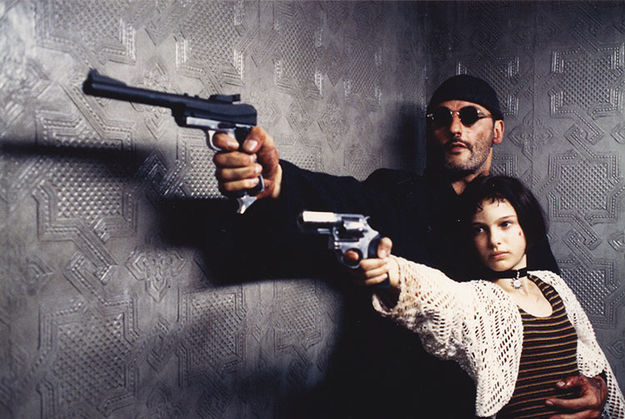
Luc Besson’s first American film and perhaps the crowning example of the cinéma du look movement that he helped establish –– essentially a style over substance narrative construction –– Léon: The Professional is an edgy revenge thriller with fairy tale-style flourish and OTT spectacle throughout.
Jean Reno is great in the title role as Léon, a hitman with a heart who pairs up with his twelve-year-old neighbor, Mathilda (Natalie Portman, wonderful), after her family is murdered by a corrupt DEA Agent played by Gary Oldman. Bonus points to Portman for her marvellous Madonna impersonation.
3. No Country For Old Men (2007)
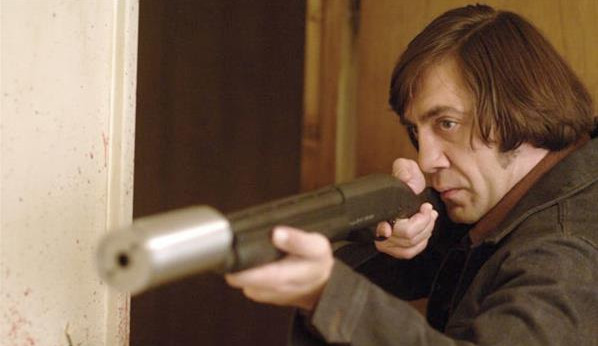
Based off of Cormac McCarthy’s bloody, brutal, and brilliant 2005 novel of the same name, No Country For Old Men is directors Joel and Ethan Coen’s uncompromising revisionist Western which contains, amongst other dark delights, Javier Bardem’s terrifying turn as hired hitman Anton Chigurh.
The pulpy plot, set in 1980, concerns lowly Llewellyn Moss (Josh Brolin), perpetually in the wrong place at the wrong time, having not much luck hunting in the Texas dessert when he stumbles across the aftermath of a drug deal gone sour –– dead and dying men and their dogs, and could this be a suitcase with a cool two million dollars inside? Llewellyn takes the money and cheeses it and then his troubles begin. Soon Anton is hired to recover the money and nothing short of an act of God will stop him.
The New York Times’ A.O. Scott succinctly said it all when he remarked that “for formalists – those moviegoers sent into raptures by tight editing, nimble camera work and faultless sound design – it’s pure heaven.” It’s heaven all right, and it’s populated by fallen angels with crooked halos, too.
2. Pulp Fiction (1994)
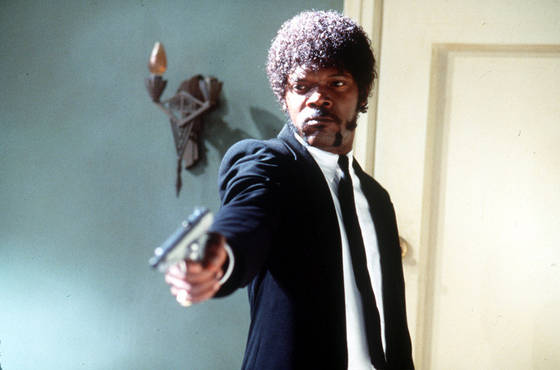
Few films have been as quoted, as cloned, or as dissected and debated, and yet, after repeated viewings, this hard-hearted and half-joking gem never gets old.
The most influential film of the 1990s, Quentin Tarantino’s pop culture-saturated dialogue is an outright delight and his visual style is more than just a grab-bag of showy devices — it adds immeasurable dimension to the characters and settings — making for an intricate, artful, yet totally trashy crazy-quilt celebration of cinema.
A diverse cast delights in its archetypal noir situations (Samuel Jackson’s hitman who’s gonna come clean, John Travolta’s hitman who’s got to take his boss’s sexy wife on a platonic date, etc), unafraid of shaggy dog detours and black comic violence and vitriol, this is Tarantino’s first masterpiece.
“And you will know my name is the Lord when I lay my vengeance upon thee!”
1. Le Samouraï (1964)

Jean-Pierre Melville’s much-praised noir masterpiece features Alain Delon as the laconic lone wolf assassin and eponymous samouraï, Jef Costello. Jef lives by the code of bushido even though he’s a contract killer.
With the police in close pursuit, and femme fatales crowding in on the periphery, Le Samouraï is a strikingly minimalist crime film that must also be viewed as the precursor to the modern American thriller.
So much is owed to this emblematic motion picture and so many sequences here contain the shock and awe one experiences when taking in a masterpiece.
Influential filmmakers like Walter Hill, Jim Jarmusch, Nicolas Winding Refn, Martin Scorsese, and John Woo have championed the film and its massive impact on their work. Melville’s film is an impossibly cool, steely toned, formalist affair full of atmosphere, yet void of optimism, but still entirely mesmerizing. It’s an artful and austere masterpiece from a major talent. Awesome and unmissable.
Author Bio: Shane Scott-Travis is a film critic, screenwriter, comic book author/illustrator and cineaste. Currently residing in Vancouver, Canada, Shane can often be found at the cinema, the dog park, or off in a corner someplace, paraphrasing Groucho Marx. Follow Shane on Twitter @ShaneScottravis.